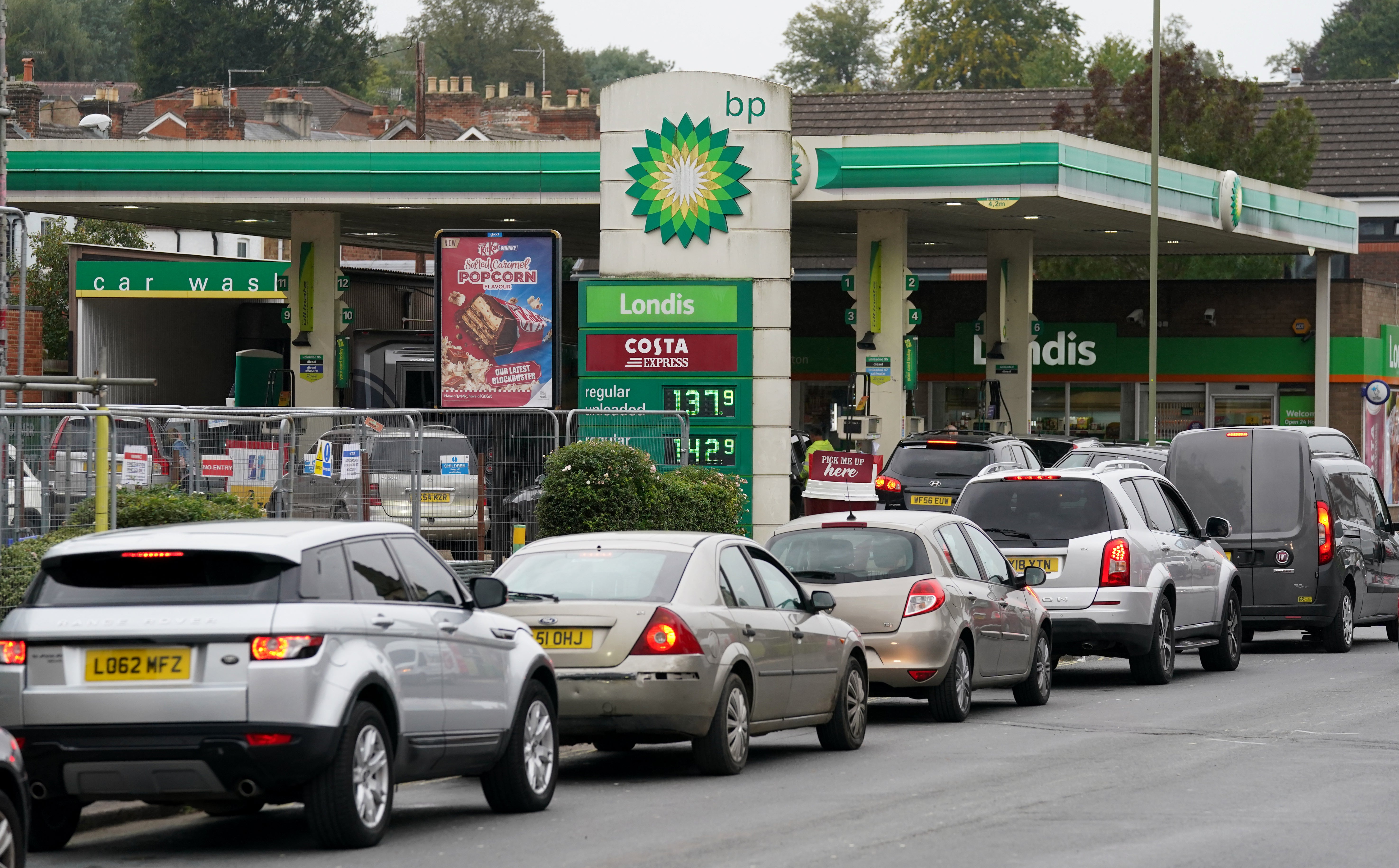Petrol stations ‘running out of fuel faster than they can be resupplied’
The Petrol Retailers Association said more than one in four stations had run dry – the same as on Wednesday.

Your support helps us to tell the story
From reproductive rights to climate change to Big Tech, The Independent is on the ground when the story is developing. Whether it's investigating the financials of Elon Musk's pro-Trump PAC or producing our latest documentary, 'The A Word', which shines a light on the American women fighting for reproductive rights, we know how important it is to parse out the facts from the messaging.
At such a critical moment in US history, we need reporters on the ground. Your donation allows us to keep sending journalists to speak to both sides of the story.
The Independent is trusted by Americans across the entire political spectrum. And unlike many other quality news outlets, we choose not to lock Americans out of our reporting and analysis with paywalls. We believe quality journalism should be available to everyone, paid for by those who can afford it.
Your support makes all the difference.Petrol stations are still running out of fuel faster than they can be resupplied, retailers have warned, amid reports of long queues continuing in some parts of the country.
The Petrol Retailers Association (PRA) suggested the easing of the situation in recent days appeared to have stalled, with 27% of stations having run dry – the same percentage as on Wednesday.
Executive director Gordon Balmer said: “PRA members are reporting that whilst they are continuing to take further deliveries of fuel, this is running out quicker than usual due to unprecedented demand.
“We would urge drivers to maintain their buying habits and only fuel up as and when needed to ensure there is plenty of fuel to go around.
That crisis is now absolutely back under control
“It is important to remember that fuel stocks remain normal at refineries and terminals, and deliveries have been reduced solely due to the shortage of HGV drivers.”
His comments appeared to contradict the Government after one minister claimed the crisis was “under control”.
Treasury Chief Secretary Simon Clarke told Sky News: “We are in a situation now where more fuel is being delivered to petrol stations than is being sold so that crisis is now absolutely back under control.
“That is something that will continue to ease if people just return to normal buying habits.”
The AA said that while queues remained at stations across London the South of England and in built up areas, there were “encouraging signs of stability”.
AA president Edmund King said: “Most drivers have managed to find fuel, but might have had to travel to several filling stations or to queue.
“A large proportion of drivers changed their refuelling habits over the last five days, and this should now allow forecourts to restock and find their feet again.”
Ministers have already begun deploying the Government’s reserve tanker fleet – driven by civilian drivers – to support the resupply of filing stations.
Business Secretary Kwasi Kwarteng has said military drivers – who have been on standby since Monday – should also start appearing on the roads in the coming days.
Meanwhile, Deputy Prime Minister Dominic Raab has suggested that prisoners could be employed to fill the wider shortages in the labour market.
The Government has rejected calls from the retail and hospitality sectors to ease immigration rules in the run-up to Christmas to ensure services are maintained.
However Mr Raab, who is also Justice Secretary, said taking on low level offenders on day release from prison could make it less likely they will re-offend while benefitting the economy.
“We’ve been getting prisoners and offenders to do volunteering and unpaid work,” he told The Spectator.
“Why not if there are shortages encourage them to do paid work where there’s a benefit for the economy, benefit for society?
“If you give people skin in the game, give them something to lose, if you give them some hope, they’re much less likely to re-offend.”